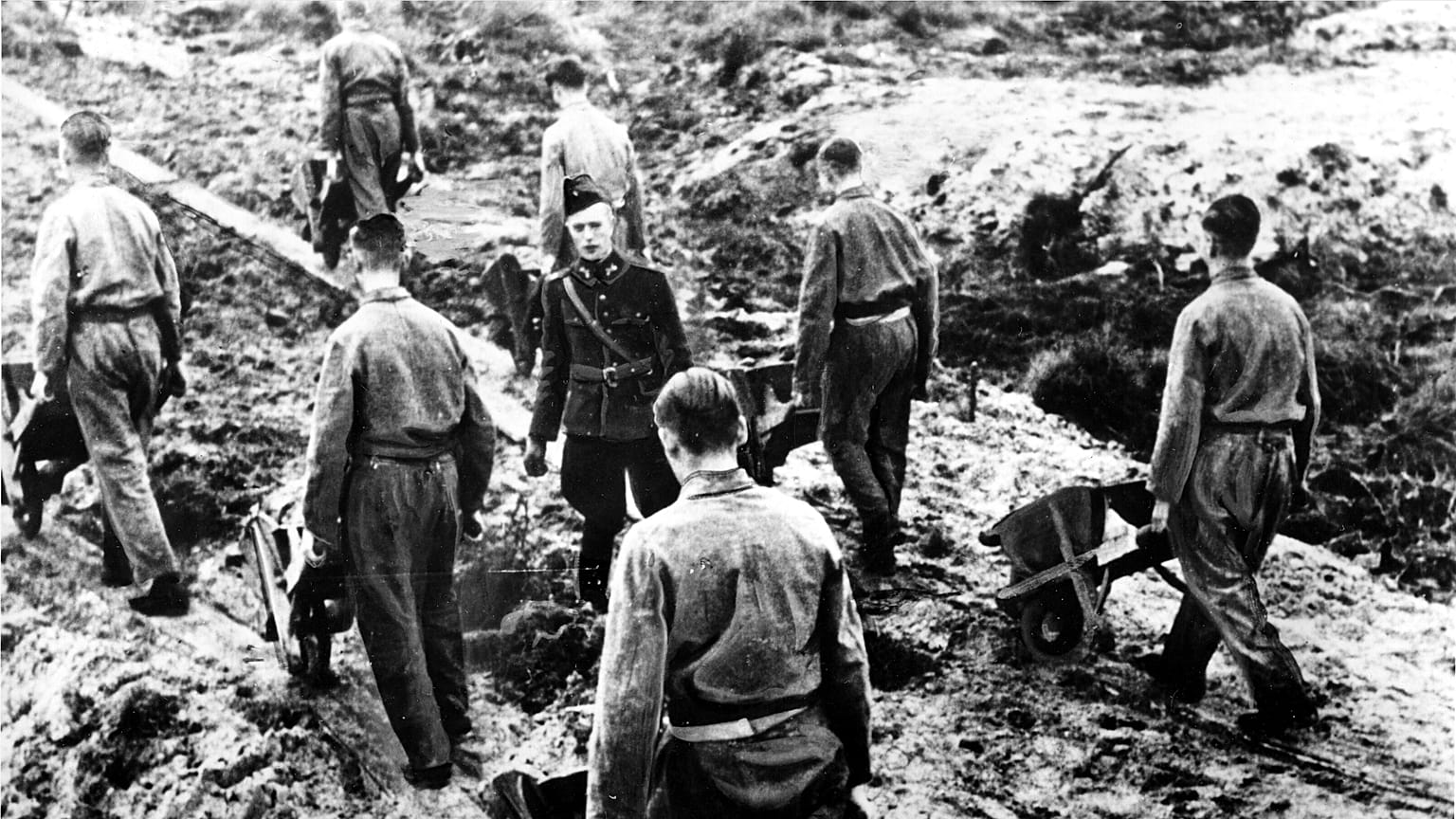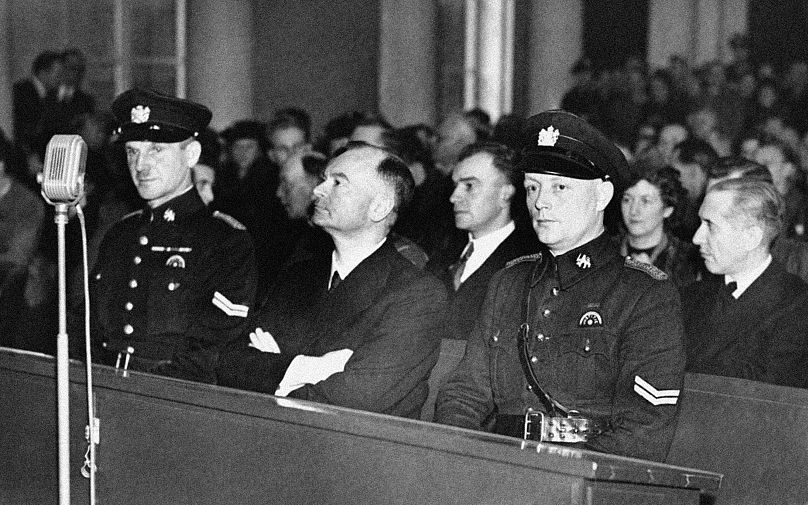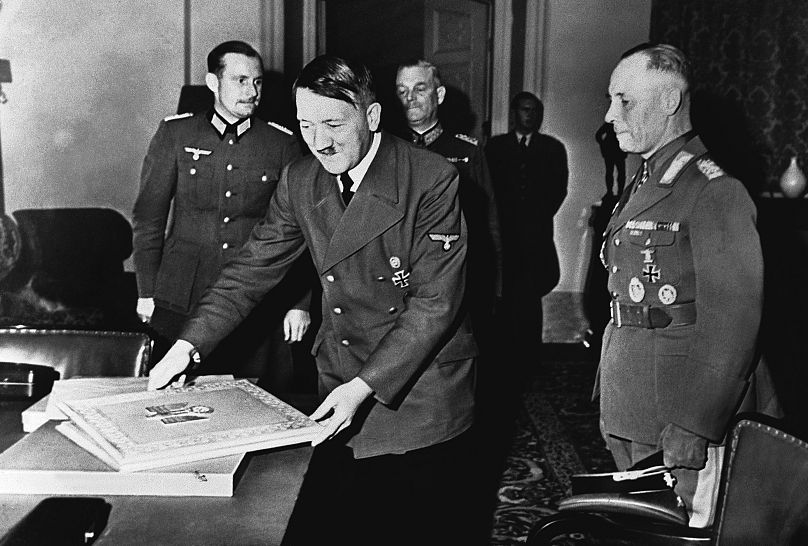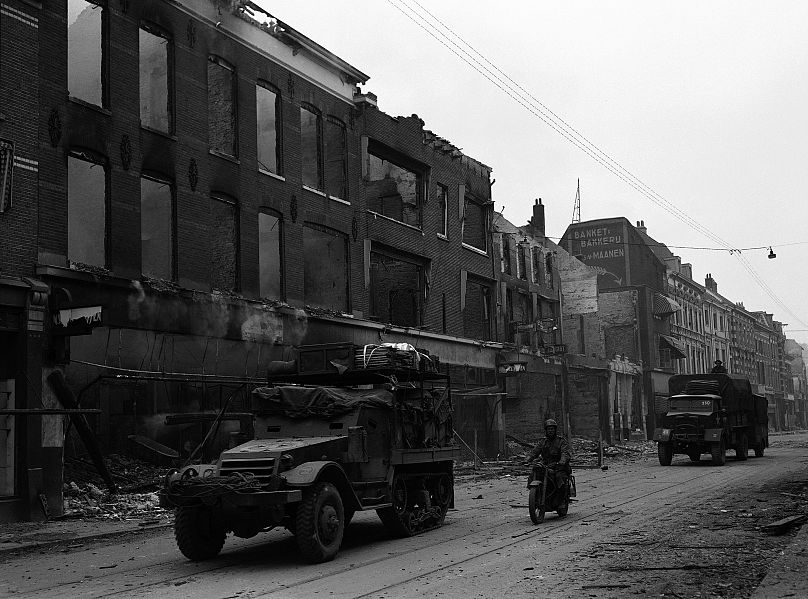The research group Huygens Institute helped digitise the archive in a project subsidised by the Ministries of Justice, Education and Health.
The Netherlands has published a database with the names of almost half a million Dutch people who are suspected of collaborating with the Nazis during the country’s WWII occupation.
The 'War in Court' project lists around 425,000 mostly Dutch citizens who were investigated for working with German occupying forces and have been made public for the first time.
Of the people included in the database, more than 150,000 appeared in court and faced some form of punishment.
The records of these investigations were previously only available to researchers visiting the Dutch National Archives in The Hague.
The research group Huygens Institute helped digitise the archive in a project subsidised by the Ministries of Justice, Education and Health.
"This archive contains important stories for both present and future generations," the institute said in a statement on their website.
"Without digital access, this archive does not exist for many, especially younger generations. Only large-scale and easy access will keep this important archive with all facets of the war relevant and allow us to continue learning from the past."
The archive contains the files of convicted criminals as well as the around 20,000 Dutch citizens deemed collaborators by signing up to serve in the German armed forces.
It also lists alleged members of the National Socialist Movement (NSB), the fascist political party founded by Anton Mussert, the Netherlands' biggest Nazi-aligned political movement.
The archive also gives the names of people who were found to be innocent after investigation.
The online database only contains the names of suspects and doesn't specify whether they were found guilty or what kind of collaboration with the Germans they were suspected of.
Under current guidelines, individuals seeking to examine archive files must submit formal requests.
Although the European Union's General Data Protection Regulation (GDPR) protects personal data, it does not apply to those who have died and that covers the vast majority of the names in the archive.
The Dutch Data Protection Authority pointed out that the files of the individuals listed, including those who are still alive, contain sensitive data, including their religious affiliation and political convictions.
The German occupation of the Netherlands lasted for much of WWII, beginning with the 1940 invasion and ending with the allied liberation in 1945.
More than 100,000 Dutch Jews are estimated to have been killed in the Holocaust.
This publication of the database is expected to spark some painful discussions in the Netherlands.
"Collaboration is still a major trauma. It is not talked about. We hope that when the archives are opened, the taboo will be broken," said National Archives director, Tom De Smet.
A 2023 survey by Claims Conference found that almost 25% of Dutch Generation Z considers the Holocaust a myth, while 53% of all Dutch citizens failed to recognise their country as a Holocaust site.
Nevertheless, 77% of Dutch people agree with the importance of Holocaust remembrance education.


















